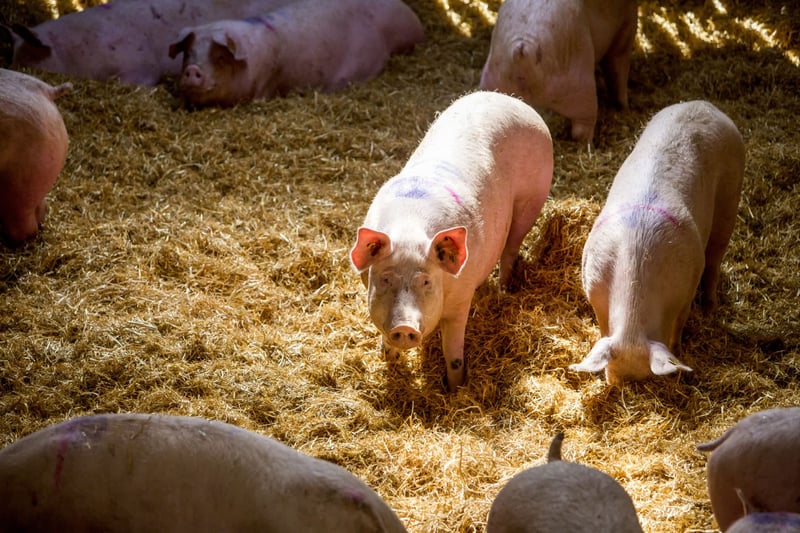
Progress to end cruel confinement for farm pigs
News
Betagro, one of the top 20 global pig producers, has committed to end the use of cruel and confining cages
Recently Betagro, one of Thailand’s leading pig producers, announced it will phase out two different types of cruel and confining cages for mother pigs across its farms by 2027. This will improve the lives of more than 250,000 pigs.
The cages being phased out are known as gestation stalls – which are used to hold pregnant pigs and are so small they can’t even turn around – and farrowing crates – where mother pigs again cannot turn around, make a nest before birthing, or properly interact with their piglets.
With our guidance, Betagro has been trialling improved conditions and housing for female pigs so they can move more freely and perform their natural behaviours. After trialling cage-free systems, Betagro has proved better conditions for the welfare of pigs are possible: good for animals and good for business.
Jacqueline Mills, Head of Farming for World Animal Protection, said:
“Betagro’s announcement shows change is possible in the world’s key pig production markets. More and more businesses are starting to understand that animals need space to move around freely and express their normal behaviour. It is unacceptable that animals are forced to live in cramped conditions where, for most pigs, they can’t even turn around.“We are calling on leading pig production companies to follow Betagro’s lead and to end cruel confinement of farm animals. We are building a movement of people across countries to call for change. Good animal welfare is good for animals, good for business and good for people.”
Global progress for pigs
World Animal Protection is working across key global pig production markets to address the treatment of farm animals and building a global movement to ensure sustainable progress for pigs.
Pigs are amongst the most intensively farmed animals on the planet. Most do not have a life worth living, let alone a good life – they suffer at every stage of their lives. Most never have the chance to explore beyond the crates they live in or the concrete under their feet.
If producers move to group housing – where pigs can move around, interact with each other and find relief for boredom – pigs will be healthier, less stressed and able to express normal behaviour including nesting and embracing motherhood.
Main image: World Animal Protection / Thomas Alexander
It is unacceptable that animals are forced to live in cramped conditions where, for most pigs, they can’t even turn around.